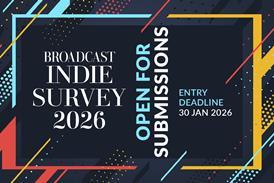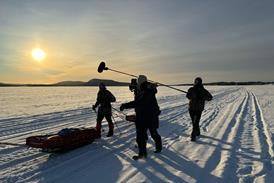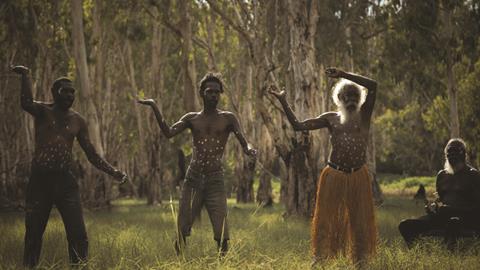‘International audiences have always been fascinated with the Aboriginal experience in Australia’
In 2014, Australian writer Bruce Pascoe published a book called Dark Emu, which made the claim that the First Nations people of Australia were not only huntergatherers, but farmers who had developed a complex economic and agriculture system.
Pascoe’s work became a national bestseller and opened up a new front in Australia’s ferocious culture wars. Now, the book’s theses and subsequent debate on the topic are the subject of a 90-minute feature film from Blackfella Films.
“Dark Emu was one of those creepers. It started slowly but ended up selling more than 250,000 copies,” says Blackfella Films producer Darren Dale. “And the reason it snowballed is because Bruce questions the fundamental view of First Australians as hunter-gatherers and nothing more. In doing so, he challenges the notion that Australia is built on – terra nullius – the idea that there were no pre-colonial inhabitants.”
Pascoe is not a historian, but Dale says he compiled a broad range of persuasive scientific evidence to support his contention. “This really cut to the core of the conservative viewpoint in Australia,” says Dale. “And the debate all became quite ugly – even going so far as to challenge Pascoe’s own identity as an Aboriginal person.”
“We wanted to examine why this one little book had animated people in such a way”
The topics involved were perfect material for Blackfella Films, a producer that has carved out a reputation for creating content with a purpose.
“We wanted to examine why this one little book had animated people in such a way,” says Dale. “We set out to present Bruce’s case but also understand the complexities of the man himself. We also look at what happens when a nation is forced to confront things it doesn’t want to confront.”
With a budget of around AUS$2m (£1.1m), funded by public broadcaster ABC and Screen Australia, Dale says the end result is “a cinematically beautiful feature documentary that has some of the most pre-eminent minds, white and black, telling stories”.
“It was important to us that First Nations people would be at the centre of the narrative – telling their remarkable stories, then backing them up with evidence,” he adds. “At the same time, we cover the political issues around the culture wars, the constant attacks by right-wing commentators.”
The film had to absorb similar cultural attacks as the book when it was released this summer. But Dale says the response from the audience has been resoundingly positive. “It rated well on ABC and also played to packed audiences at the Sydney Film Festival.”
Dale is in Cannes to promote the film alongside distributor ABC Commercial.
“International audiences have always been fascinated with the Aboriginal experience in Australia. It carries a similar appeal as the Romans and the Greeks, particularly around subjects like art and spirituality,” he says.
“Some audiences will respond to this as a beautiful journey that explores the enormity of this country from deserts to rain forests. But others will welcome it as a survey of pre-colonial Australia, an opportunity to challenge preconceptions and enlighten their understanding of Australian history.”
Factual and Formats

Ob-docs and true crime continue their factual streak with Strip and The Flight Attendant Murders leading
- 1
 Currently
reading
Currently
reading
Hot Picks: The Dark Emu Story
- 3
- 4
- 5
- 6
- 7
- 8
- 9















































No comments yet